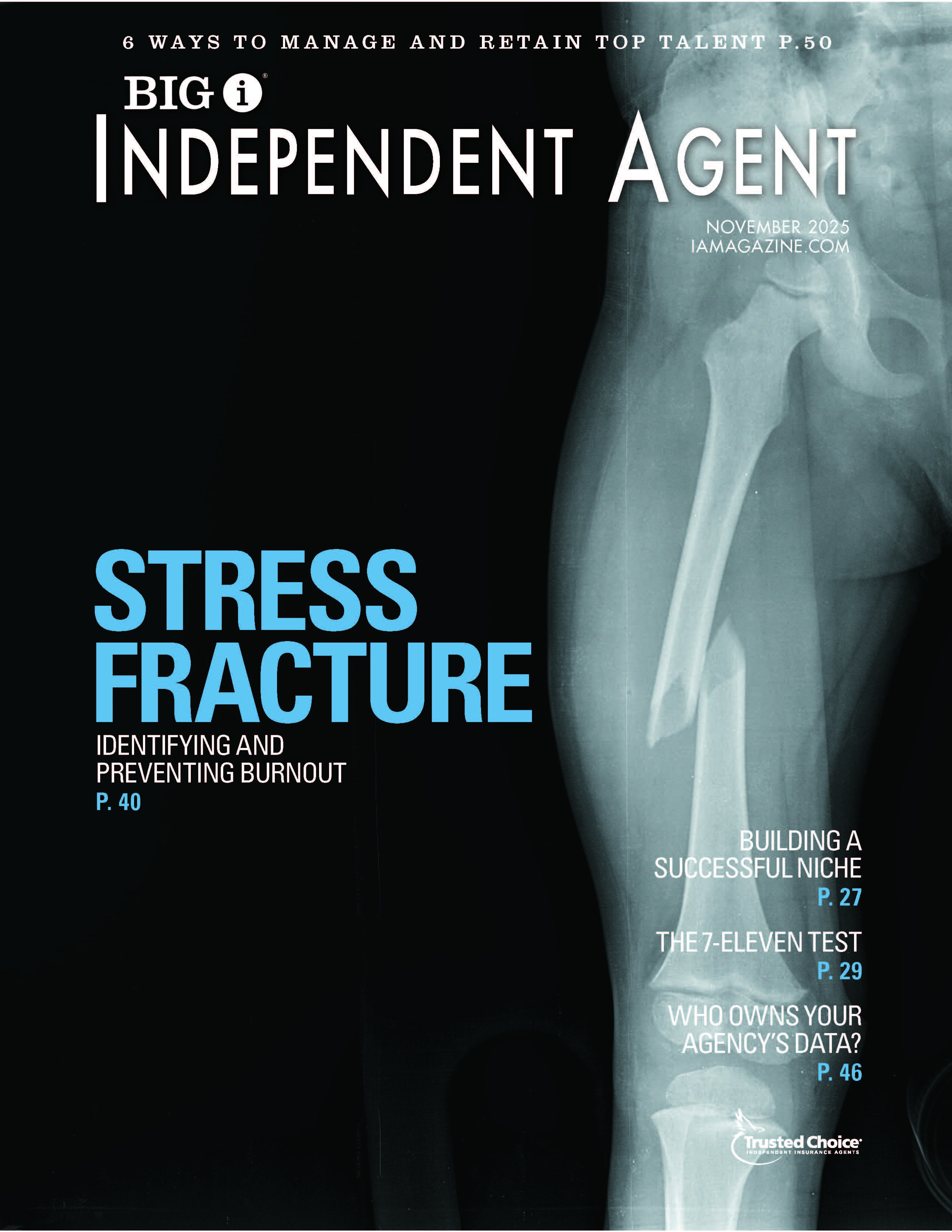Calculate Workers’ Comp Mods for New Company Owners
By: Bill Wilson
| An agent asks, “What is the rule with regard to workers’ compensation when an employee buys the company that he has been working for? The company changed from a corporation to an LLC. Will the company’s mod change?” The National Council on Compensation Insurance (NCCI) has a three-pronged ownership, classification and process rule regarding ownership changes. In the example cited, the employee would buy the experience rating modification factor, unless there has been a change in operations, processes or hazards of the business. The experience used to calculate a mod includes applicable payroll and actual incurred losses for all of the insured’s (owner’s) current and past operations within each state, including any operations that have been discontinued or self-insured, until they drop off of the experience period. If an interstate mod is being calculated, the experience includes operations in all states, with some exceptions—that is, monopolistic states—outlined in the manual. The experience is included from all businesses of the insured under common majority ownership, examples of which are provided in the manual. These interests and any changes of interests are shown by submitting NCCI form ERM-14, “Confidential Request for Information,” to the insurer. Supposedly, this ownership rule exists for two reasons in particular. First, the premise is that experience and loss control are functions of ownership and process. Second, the rule tries to avoid what many insureds attempted in the past to circumvent the experience rating plan. For example, if the experience mod was too high because of poor experience in one state, some insureds would create a dummy corporation to transfer ownership to the new corporation, lower the mod on the remaining operation and give the new corporation a 1.00 mod. So, in addition to the common ownership rule, NCCI modified its change in ownership provision. In general, the experience of any entity undergoing a change in ownership is continued and transferred to, or retained by, the experience rating(s) of the acquiring, surviving and/or new entity. The experience of any entity undergoing a change in ownership is excluded from future experience ratings only if there is:
All three conditions must be met, which is highly unlikely: It would be like selling a woodworking shop to a new owner who plans on turning it into an ice cream parlor. If the purchaser of the entity does not have an existing mod, the mod of the entity becomes 1.00 if the experience of the acquired entity is excluded for the reasons above. Otherwise, a mod is calculated from the applicable combined experience of the entity and the purchaser (if any). If the seller of the entity continues to be experience-rated, its mod is revised to exclude all experience of the relinquished entity if NCCI is furnished with the experience necessary to transfer the data to the purchaser. Bill Wilson (bill.wilson@iiaba.net) is director of the Big “I” Virtual University. The full version of this story is on the VU. For help accessing the website, email logon@iiaba.net to request login information. In addition, the VU has a complete online course on workers’ compensation experience rating. It provides information on the meaning of everything on the worksheet, including where it comes from and why. Agents can also learn how to calculate a mod from scratch and use sample loss runs and audit reports to find errors on worksheets, which agents can correct and save insureds thousands of dollars often retroactively. |










